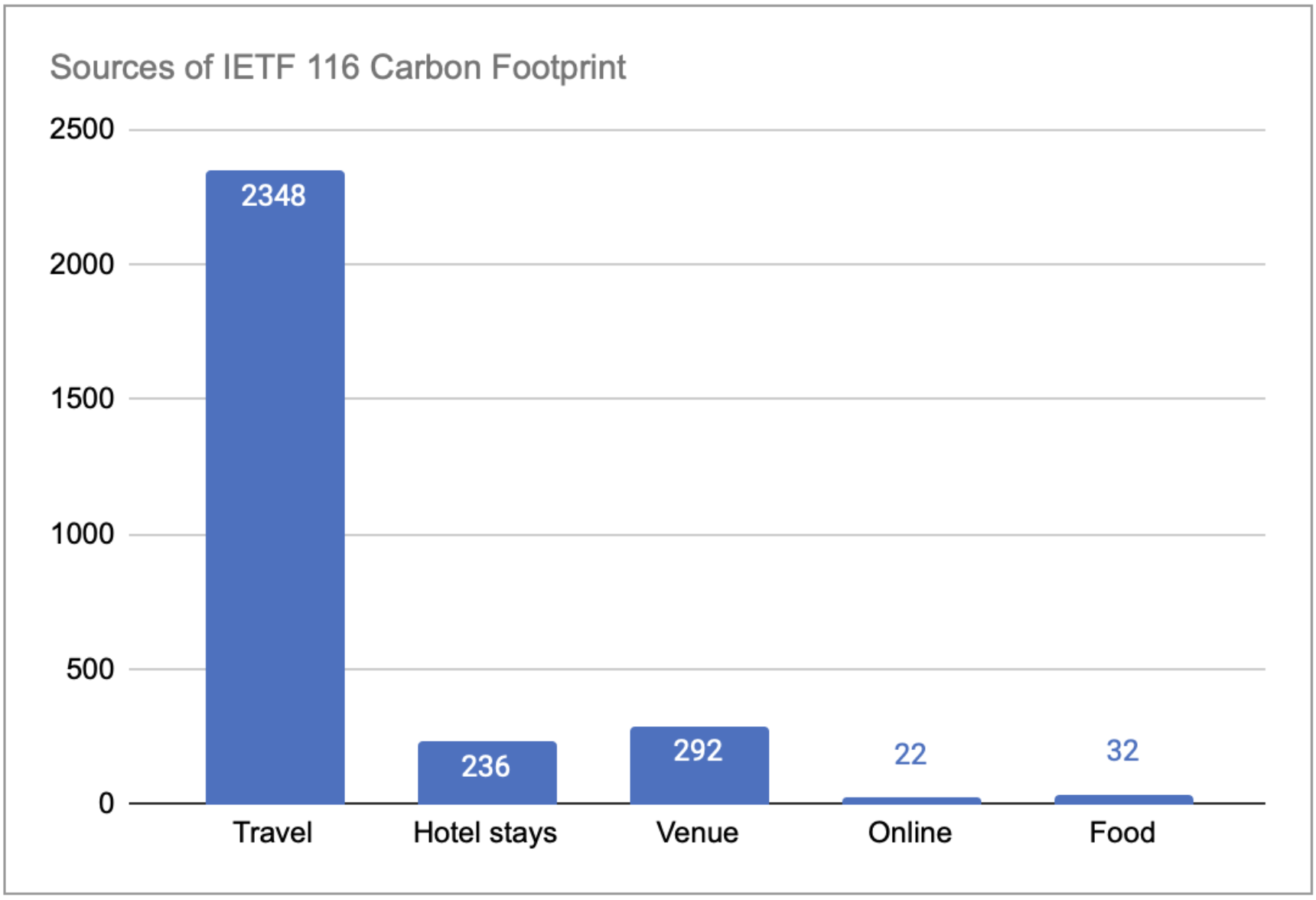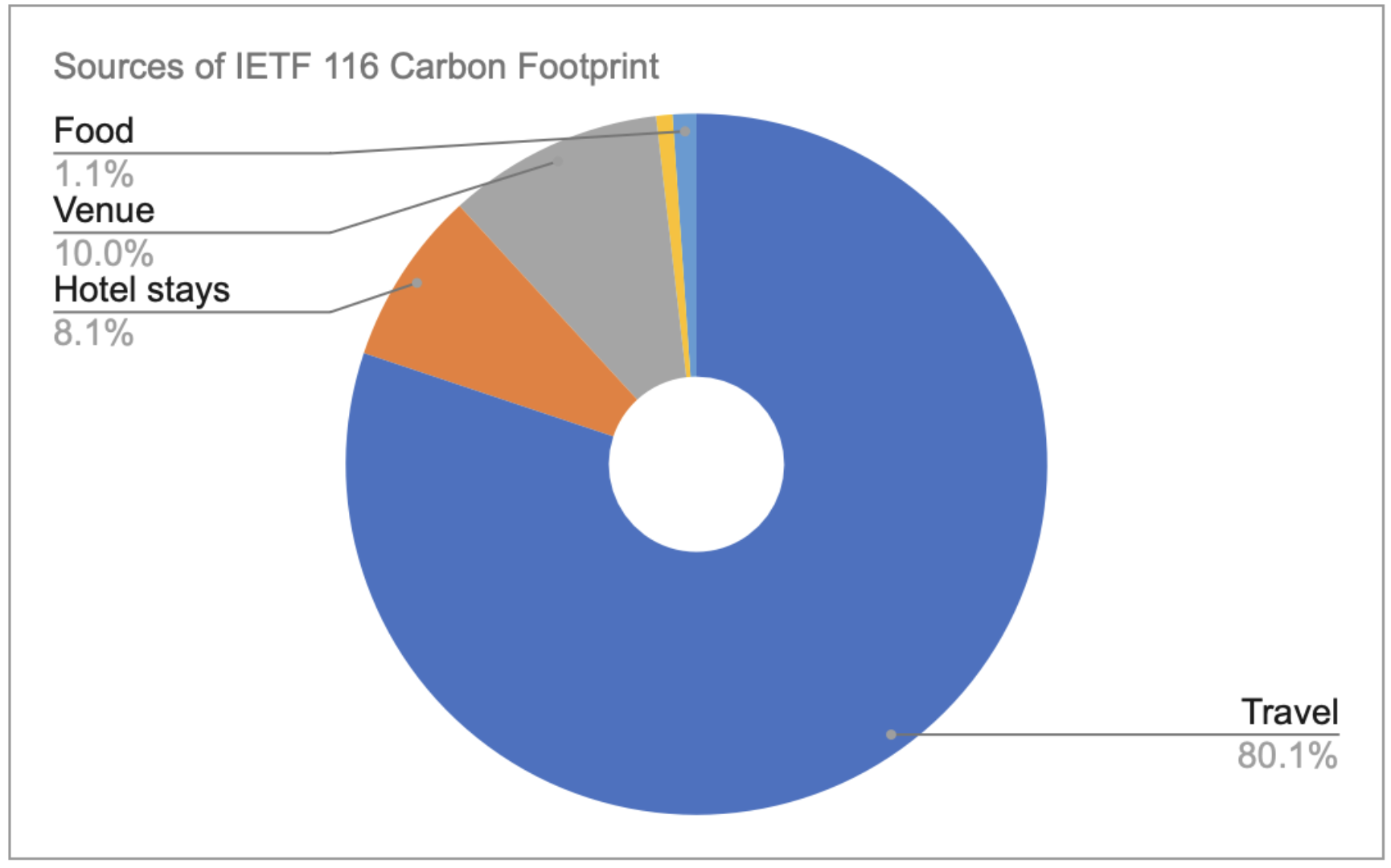Filter by topic and date
Net zero update for July 2023
- Greg Wood IETF LLC Director of Communications and Operations
19 Jul 2023
We have begun putting into action the carbon footprint calculator developed last year and have been doing some initial research into additional steps we might take to reduce and possibly offset the IETF’s carbon footprint.
This post reports the results of those calculations, recaps some of the known limitations of our current approach, and shares what the IETF Administration LLC expects to do next to calculate, and to possibly reduce and offset the IETF’s current carbon footprint.
Calculated carbon footprint for the IETF 116 meeting
We have now applied the data already collected via existing IETF meeting processes to the calculator developed last year to understand the IETF’s carbon footprint. It takes into account a variety of activities associated with IETF meetings but has limitations. For example, since we don’t collect detailed data, conservative assumptions are incorporated into the calculations. As a result, travel is assumed to be by air from capital city to capital city using a blended coefficient to account for differing classes of aircraft travel.
As the charts below indicate, the overwhelming majority of the total 2,930 tCO2e (tonnes of CO2 equivalent) calculated for IETF 116 are from travel to and from the venue by participants. While hotel stays and the venue operations themselves are also calculated to be significant contributors to the carbon footprint of an IETF meeting, online participation and food provided during the meeting are relatively small portions of the overall footprint.


Notably, ongoing non-meeting operations undertaken by the IETF LLC staff and IETF Secretariat for the entire first half 2023 are calculated to be about 30 tCO2e, indicating they are likely to be less than 1% of the IETF’s overall carbon footprint.
Going forward, we will continue to calculate the estimated carbon footprint of the IETF for the remainder of 2023 using our existing methods. However, we would like to explore ways to improve the data used in calculations. This might mean allowing meeting participants to provide more detailed information during the registration process, or providing a calculator for participants to calculate their personal carbon footprint on a per-meeting basis. While perfect accuracy is not a goal, having better data would help us to understand the IETF’s actual carbon footprint, and thus guide efforts to reduce and possibly offset it.
We are already speaking with organizations who have acquired carbon offsets to better understand the process, and to gain insight about what might be appropriate for the IETF.
We are particularly grateful for the support of IETF Sustainability sponsors, such as Gold Sponsor Oracle Cloud Infrastructure. If you would like to support efforts to make how the IETF works more sustainable, please contact Stephanie McCammon of the IETF sponsorship team.
If you are interested in learning more and participating in the conversation, please subscribe to the admin-discuss@ietf.org mailing list, or consider joining the side meeting at 8:30 PDT on 27 July, organized alongside the upcoming IETF 117 San Francisco meeting being held on 22-28 July 2023.